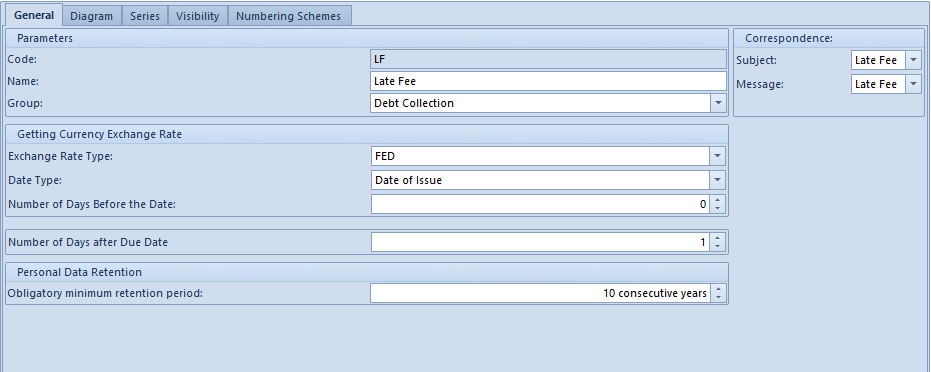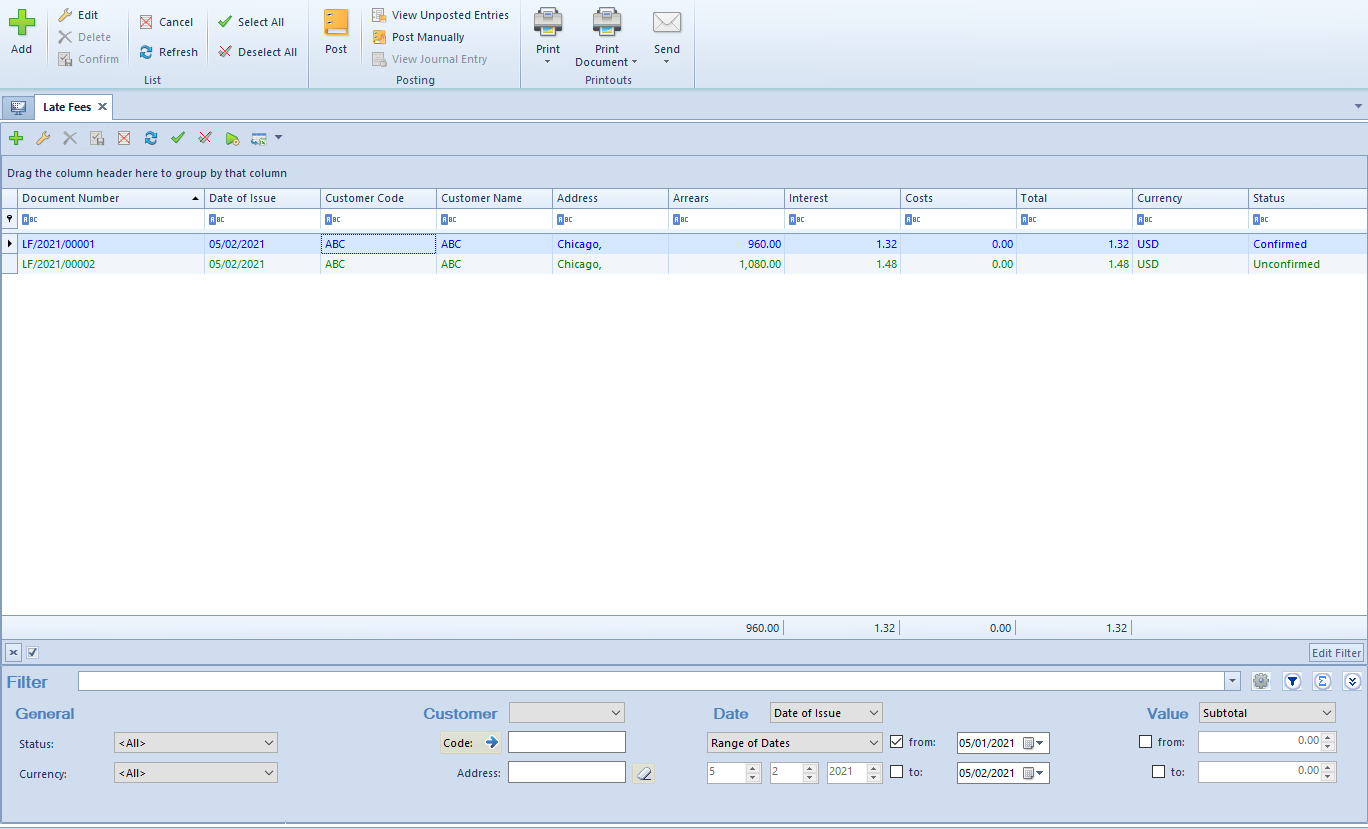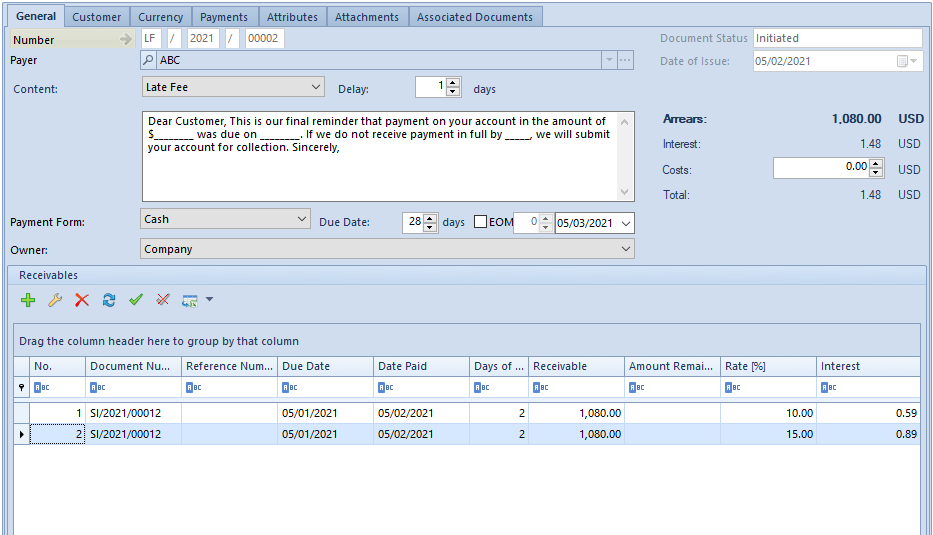A late fee is a document in which interest associated with a late payment for receivables are charged.
Configuration of parameters on Late Fee document type
On Late Fee document type, in the tab General, a user can set:
- Exchange Rate Type – for late fees issued in foreign currency. It is possible to select one of the exchange rates defined in the system configuration.
- Exchange Rate Type – for late fees issued in foreign currency.
- Number of Days Before the Date – for late fees issued in foreign currency.
- Number of Days After Due Date – number of days after which a late fee will be sent.
- Obligatory minimum retention period
- Subject – e-mail message subject. The values defined in generic directories are available.
- Message – e-mail message content. The values defined in generic directories are available.

List of late fees
The list of late fees is available from the level of Finances → Late Fees The list contains standard buttons.

The following columns are presented for particular documents on the list:
- Document Number
- Date of Issue
- Customer Code
- Customer Name
- Address – customer’s address
- Arrears – total of amounts to be paid for receivables indicated in the late fee
- Interest – total of interest calculated for payments added to the late fee
- Costs
- Total – total of arrears and costs and interests
- Currency
- Status
Detailed description of functioning of the filters can be found in category Searching and filtering data.
Adding a late fee

Tab General
- Number – number consistent with the numerator
- Payer – selection of a customer from the list of customers
- Content – e-mail message content
- Delay – number of days after due date, specified in the Late Fee document definition. Default values is 1 day and it can be changed at any moment. For example, if in the field Delay, number of days 3 is indicated, it means that a late fee document can include payments which were made at least 3 days after the due date.
- Payment Form – retrieved from the form of a customer indicated as a payer
- Due Date – retrieved from the form of a customer indicated as a payer
- Owner – center of the company structure which is the issuer of a document
- Date of Issue – the current date is set by default, without a possibility of changing it
- Overdue – a total of remaining amounts from receivables list
- Interest – total of interest calculated for payments added to the late fee
- Costs – it is possible to define a numeric value of costs associated with
maintenance of a specific late fee document - Total – a total of values Overdue, Costs and Interest
General → Receivables
The list is composed of the following columns:
- No. – ordinal number of added payments
- Document Number – system number of a receivable’s source document
- Reference Number – number of the receivable’s source document, provided by a user
- Due Date – payment due date
- Days of Delay – number of days between due date and late fee date of issue
- Receivable – receivable amount
- Amount Remaining – receivable amount to be paid
- Rate [%] – applicable interest rate retrieved from the form of a customer indicated as a payer
- Interest – interest amount charged for payment
In order to add a receivable, click on [Add] from the Receivables button group. A list with receivables which fulfill the following conditions is opened:
- were issued for the customer indicated as a payer on the late fee
- were entirely or partially paid after their due date
- the number of days of delay is bigger or equal to the value in the column Delay of the late fee document

Days of delay for particular receivables are calculated as a difference between the date of payment and the due date. Column Debt Collection indicates whether a debt collection document has been already issued for a given payment. Above the list of receivables, there is Payments associated with late fees parameter which decides whether on the list there are also displayed receivables which were already included in another late fee.
Only payments of confirmed documents can be added to a late fee. The exception is an opening balance document.
Tab Customer
In this tab, there is data of a customer selected as the payer in the tab General displayed.
Tab Currency
In this tab, there is information regarding exchange rate and date of the currency of a late fee.
Tab Payments
In this tab there are displayed payments of receivables type for the amount of late fee costs. Their currency and exchange rate are consistent with values in the document.
Tabs Attributes, Attachments, Associated Documents, Change History
Detailed description of the tabs can be found in articles Tab Attributes, Tab Attachments, Tab Associated Documents and History.
